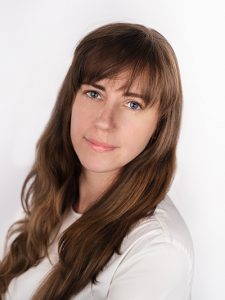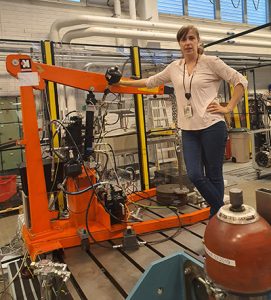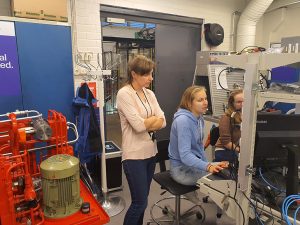
Tatiana Minav, Assistant Professor at Tampere University
When one thinks of fluid power research and university-level instruction, people often think of MSOE or Purdue here in the U.S. In Europe, a few key universities come to mind — RTWH Aachen University, Germany; Technical University Dresden; Aalto University, Finland; Tampere University, Finland; and Linköping University, Sweden.
Being affiliated with one of these universities is testament to a researcher’s knowledge, and Tatiana Minav is one such woman. Over her career, she has been affiliated with three of those universities mentioned, including Purdue, Aalto and Tampere.
Minav earned her engineering degree from St. Petersburg Electro-Technical University, then later did her Master’s and post-doctoral work at Lappeenranta University of Technology, Finland and has done several stints as a post-doctoral researcher working on powertrain solutions for electrical vehicles, direct driven hydraulics under Arctic conditions, thermal hydraulics, sensorless position control and more.
Now, she is Assistant Professor at Tampere University, where is continuing her dream of working on a concept of more efficient and intelligent off-road mobile machinery. Minav said that if she could focus on just one aspect of engineering, it would be in the mobile machinery space, where she would love to improve the efficiency of off-road machinery and bring them to zero emission level. She would also enjoy creating ultimate autonomous and intelligent machines that would self-plan and self-repair themselves, collaborate with each other and with humans.

Minav is working on a concept of more efficient and intelligent off-road mobile machinery.
She found a path to fluid power after she began studying electrical engineering in her post-grad studies. “From high school I knew that I didn’t want to be a teacher or medical doctor. This logic brought me to engineering — specifically, electrical engineering. And only during my second Master’s degree I discovered fluid power for myself. After I started doing my PhD study I realized how it is cool to be an engineer. My professor told me: with an engineering degree, you have permission to break things, because you know how to fix them.”
As a researcher and professor, Minav not only gets to shape technology but future students as well. She encourages young people to explore fluid power engineering at the high school and college levels because it is fun. As she said, “Always ask questions! There are no stupid questions. If you don’t ask a question, nobody will offer you anything.”
In her role at Tampere, she enjoys educating and working with new students as well as leading industrial projects at the university. Not only does she have administrative responsibilities, such as organizing processes and helping to meet deadlines, she also gets hands-on with industrial research projects.

Tatiana Minav is mentoring 10 students, including three young women, at Tampere University
“My work is to grow students who can do projects for the industry inside university and later in industry,” she said. “My involvement in industrial projects starts from discussing with companies. I listen and offer solutions based on their needs. Industrial projects can be simple or they can encompass state-of-the-art research to advance prototype development. Based on the project type, my participation varies from helping to find correct technologies to going to the lab to help assemble test rigs, or creating simulation models.”
As for women in fluid power, Minav hopes to see more young woman pursue a career in the field as they can offer so much to the technological future of the industry. “I believe diversity helps. My personal example would be in my own projects: with more diversity in groups comes more opinions and solutions, and thus, more creative ideas. From there innovation is coming. Women bring a fresh point of view, and they deliver very accurate results.”
Filed Under: Women in Fluid Power